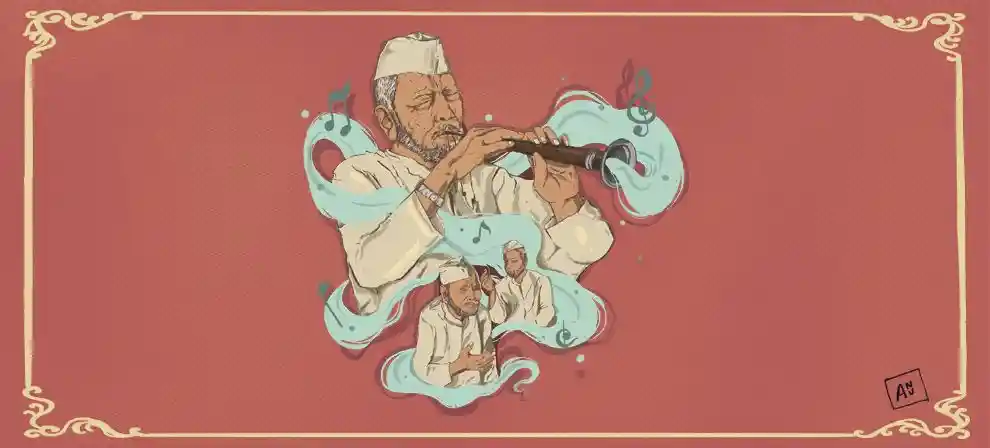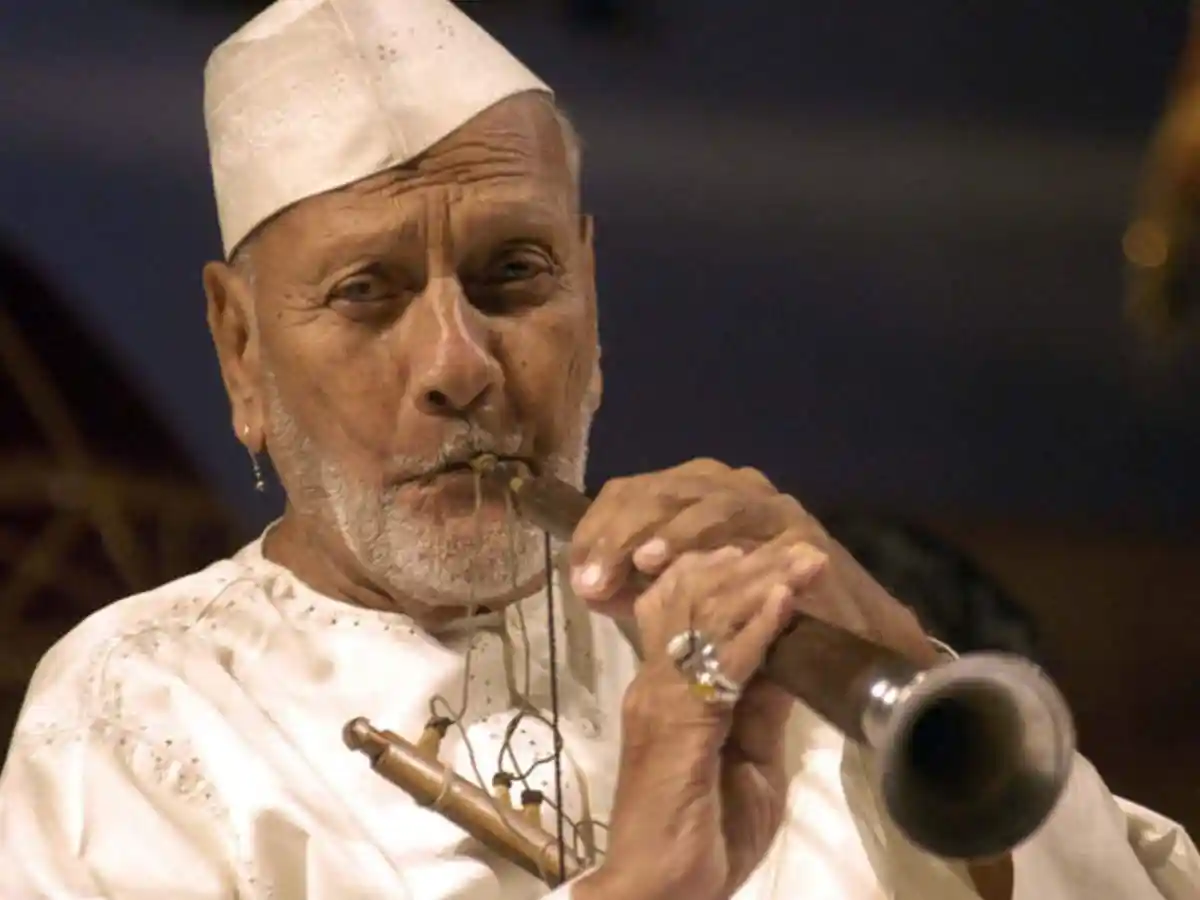Unki Shehnai Ki Dhun
Ustad Bismillah Khan was a man who truly believed music to be the only and the greatest religion of all time. For him, playing his shehnai was nothing less than a divine and heavenly journey. Here's a peek into his journey as a shehnai player.

Bismillah Khan. Illustrated by Anupama: Visual Storyteller at ThisDay
"If you said shehnai, you said Bismillah Khan. You did not say anybody else, it became synonymous."— Zakhir Hussain
That is how you know someone made the instrument identifiable with their name. Not only did he popularise the shehnai but also elevated its level by introducing it in stage concerts. Reading this must have already made you familiar with how much of a legend Ustad Bismillah Khan was. Well, the prefix Ustad itself connotes his superiority and status.
Ustad was lucky to have been born in a family of traditional musicians on 21st March 1916. The sight of his birth took his grandfather by joy and he thus exclaimed the word "Bismillah" in return (meaning in the name of Allah). Soon enough, Qamruddin Khan was known to be Bismillah Khan. His father, grandfather, and great-grandfather were all musicians who would play in the Dumraon palace and well, he went following their steps as well.
At the age of 6, Khan moved to Varanasi where he met his uncle Ali Bux 'Vilayatu' Khan who was a shehnai player associated with the Kashi Vishwanath Temple. When he became 14, he started accompanying his uncle to many music conferences.
Banaras was Ustad's greatest ever admiration. For him, not being able to stay close to Banaras would make him feel homesick. His complete journey from knowing about music to playing his melodious shehnai began and remained alive in Banaras. His uncle would make him practice ragas in the Balaji temple. Khan would often say that there is always a designated spot one can confine themselves to when they are doing their riyaaz, and for him, it was the Balaji temple of Banaras.
From 3 to 4 hours of regular riyaaz, Ustad had accepted the fact that there was nothing as divine as practicing music. There was a time he eventually had a godly vision while in his deep meditation of practicing sangeet. When he told the same to his uncle, he was scolded and said to never talk about it to anyone. Although unbelievable, these are what truly divine spiritual journeys seem like, and ever since then, he only believed music to be a high form of celestial experience.
"An image can never be the real thing. Varanasi is where the Ganga flows, where I can play the Shehnai for Lord Balaji. I shall be at home, nowhere else but in India.“— Ustad Bismillah Khan
These practices and saint beliefs of his made him a shehnai maestro. There was a mixed pattern of tunes he had curated through his talent. Ustad's shehnai was often considered as a unifying bond for people. It would break through the barriers of religious differences and beliefs by directly finding a way to the people's hearts.
After India gained its Independence on 15th August 1947, Ustad Bismillah Khan was the first Indian to greet the nation with his Shehnai from the Red Fort in Delhi. For his exceptional talent and remarkable contributions to the Indian field of classical music, he was decorated with awards like the Padma Shri, Padma Bhushan, Padma Vibhushan, Sangeet Natak Akademi Award, and many more.
One of his greatest desires was to play his instrument as a tribute to the lost lives of Indian martyrs in World War I. However, it couldn't sadly be fulfilled because of his deteriorating health which led to his death later on 21st August 2006.
This is my world. My Namaaz is the seven ‘sudh’ [pure] and five ‘komal’ [soft] surs“
With such a devoted heart and the most intricately produced sounds on his shehnai, Ustad Bismillah Khan's dhun still manages to linger around in all its divine form.

Music that breaks barriers; Source: The Economic Times


